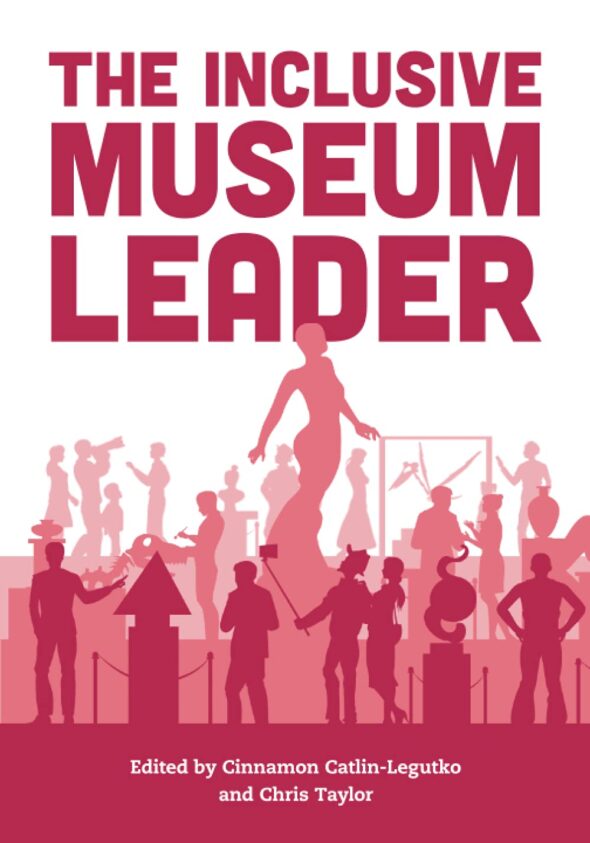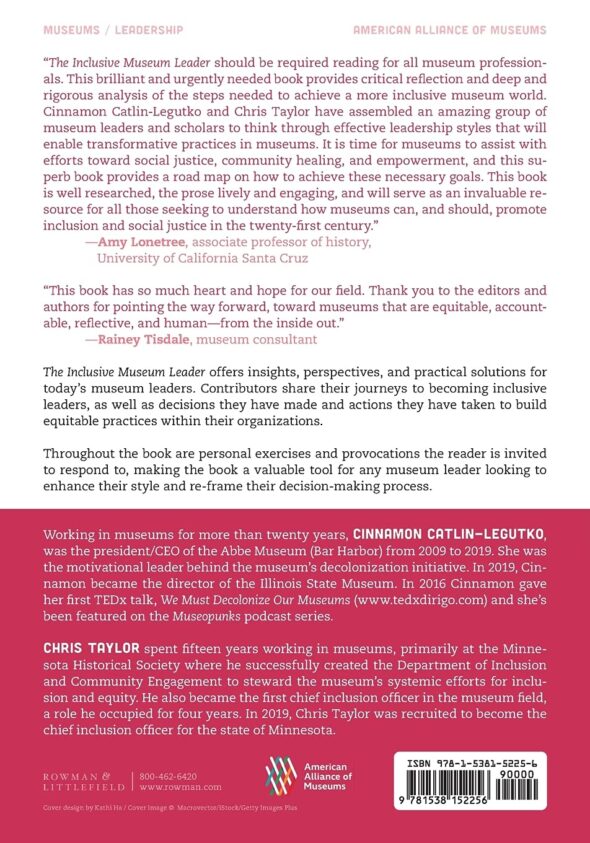Earlier this year I had the opportunity to contribute a chapter to a new book, published by Rowman & Littlefied and the American Alliance of Museums, called The Inclusive Museum Leader. Edited by Cinnamon Catlin-Legutko, director of the Illinois State Museum, and Chris Taylor, chief inclusion officer at the Minnesota Historical Society, the book features over 25 diverse and accomplished leaders from across the museum field. Together, the authors “share their journeys to becoming inclusive leaders, as well as decisions they have made and actions they have taken to build equitable practices within their organizations.”
For my chapter, I was asked to respond to the following prompt: “As someone that is recognized as an inclusive leader, what is your catalyzing moment when you learned that you either were an inclusive leader, or that you needed to evolve into an inclusive leader?” This was not an easy task. My story is personal and not something I usually speak about publicly. Entitled 8:46:40, to specify the moment when the first plane hit the World Trade Center in New York on September 11, 2021, I describe how a traumatic event impacted both my life’s work and my journey into the museum field.
Here’s an excerpt from the first paragraph. To read more, along with the other chapters from a collection of highly-respected museum professionals, please consider purchasing a copy of the book. The following code will provide a 30% discount if ordered through Rowman & Littlefield: RLFANDF30.
It is often said that September 11, 2001 was the day that changed the world. Most Americans alive at that time can vividly recall the details of that horrific day. The recollections of where we were, whom we were with, and the feelings that subsumed us are now etched in our minds and define both our individual and collective memories. And, in many ways, those acts of terrorism unified a majority of Americans as the nation sought to heal and respond to the trauma. However, for others, the events ushered in a new era of suspicion, surveillance, and marginalization that arguably continues to this day. This is especially true for Arab and Muslim Americans. In fact, 9/11 remains a day of multiple traumas for many Arab and Muslim Americans: one marked by the grief of the tragedy, and also the subsequent traumas associated with sharing a likeness to those responsible for the horrors. For me, as a relatively young, third-generation Arab American, the day would serve as a defining moment that would have a profound impact on my identity and outlook that continues to this day.

